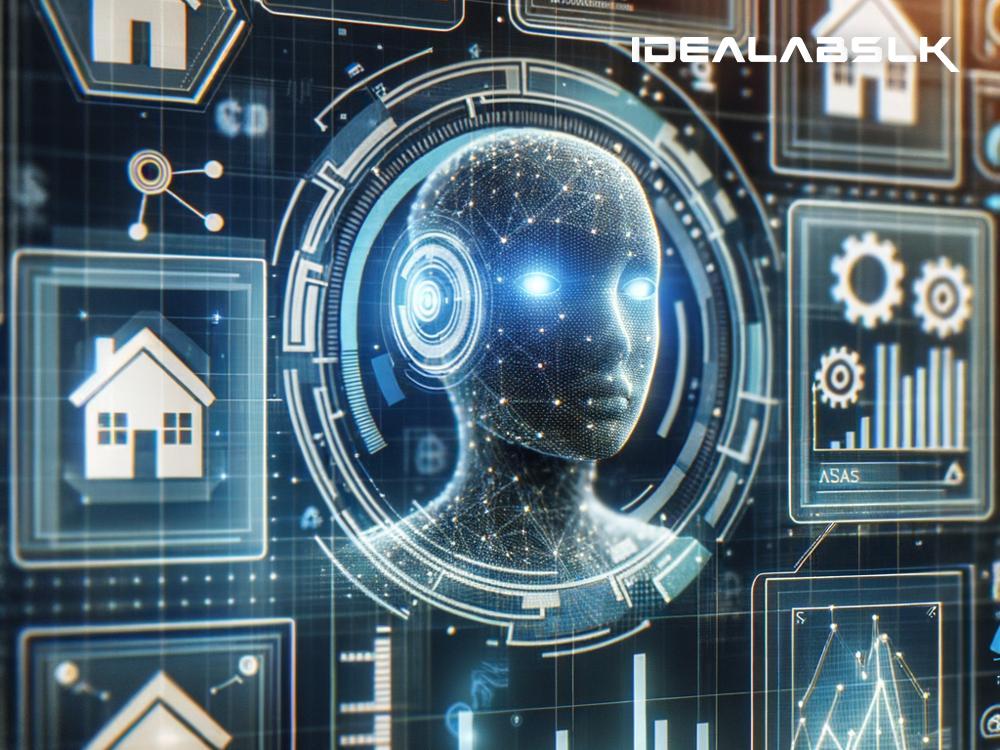AI and Blockchain: Pioneering Real Estate Tokenization
In the rapidly evolving world of technology, Artificial Intelligence (AI) and Blockchain are two titans synonymous with transformation and innovation. While both can independently propel substantial advancements across sectors, their synergy has begun to redefine the realm of possibilities. One striking example of this collaboration is in revolutionizing the real estate industry, particularly through the concept of real estate tokenization. Let's break down this concept in simple terms and explore how AI and Blockchain are turning science fiction into reality.
Understanding Real Estate Tokenization
Imagine you could own a piece of a popular shopping mall or a luxury resort without having to buy the entire property. Sounds intriguing, right? That's the basic premise of real estate tokenization. It's like owning a small piece of a giant cake without having to buy the whole dessert. This approach divides property value into digital tokens, which people can buy and sell, making real estate investment more accessible, flexible, and democratic.
The Role of Blockchain in Real Estate Tokenization
Blockchain is essentially a digital ledger that is secure, transparent, and immutable, meaning once something is recorded, it cannot be altered or deleted. This technology is the backbone of cryptocurrencies like Bitcoin. When applied to real estate tokenization, Blockchain offers a robust framework where property tokens can be bought, sold, and tracked in real-time without the need for traditional, cumbersome paperwork or middlemen.
Here's how Blockchain elevates real estate tokenization:
- Trust and Transparency: Every transaction is recorded on the Blockchain, visible to all parties, ensuring transparency and building trust.
- Efficiency and Cost Reduction: By eliminating intermediaries and streamlining processes, transactions are faster, and associated costs are significantly reduced.
- Fractional Ownership: Blockchain enables the division of property into affordable tokens, making real estate investment accessible to a broader audience.
How AI Complements Blockchain in Real Estate
While Blockchain provides the structure for real estate tokenization, AI is the brain that makes this structure efficient and scalable. AI can analyze vast amounts of data to predict market trends, assess property values, and identify optimal investment opportunities. Here are some ways AI contributes to the process:
- Market Analysis: AI algorithms can sift through historical and current market data to forecast future trends, helping investors make informed decisions.
- Property Valuation: By evaluating various factors, AI can accurately determine property values, ensuring that tokens are priced fairly.
- Personalization: AI can tailor investment opportunities to individual preferences, risk tolerance, and financial goals, enhancing the investor experience.
The Impact on the Real Estate Market
The integration of AI and Blockchain in real estate tokenization is not just about innovative technology; it's about reshaping the market landscape. Here's the potential impact:
- Democratization of Investments: By lowering the entry barrier, more people can invest in real estate, diversifying the investor base.
- Global Accessibility: Investors from around the world can participate, thanks to the global nature of Blockchain and digital tokens.
- Increased Liquidity: Tokenized properties can be easily traded, making real estate investments more liquid compared to traditional methods.
Real-life Applications and Future Possibilities
Several platforms have already started implementing real estate tokenization, offering a glimpse into the future. For example, platforms enable investors to buy tokens representing shares in commercial real estate, residential complexes, and even undeveloped land. As the technology matures and regulations become clearer, we can expect more widespread adoption and innovative use cases, perhaps even integrating virtual reality to allow investors to explore properties in a fully immersive way.
Challenges and Considerations
Despite the promising outlook, there are challenges to navigate, including regulatory compliance, ensuring cybersecurity, and educating the market about this new way of investing. The successful integration of AI and Blockchain in real estate tokenization will depend on addressing these challenges head-on, fostering collaboration between technologists, regulators, and stakeholders in the real estate industry.
Conclusion
The intersection of AI and Blockchain is making real estate tokenization not just a possibility but a practical and transformative reality. By democratizing access to real estate investment, enhancing transparency, and optimizing efficiency, these technologies are paving the way for a more inclusive, dynamic, and secure market. As we stand on the cusp of this new era, the dream of making real estate investment accessible to everyone is closer than ever, thanks to the power of AI and Blockchain.

